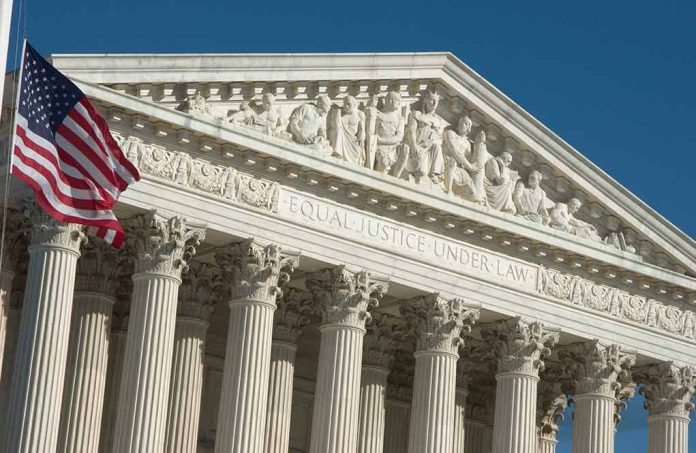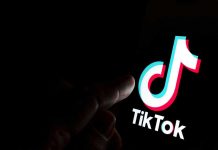
The Supreme Court has unanimously upheld the FDA’s authority to regulate sweet-flavored vaping products in a case that could significantly impact the e-cigarette industry and public health efforts to curb teen nicotine use.
Key Takeaways
- The Supreme Court overturned a federal appeals court ruling, supporting the FDA’s rejection of Triton Distribution’s application to sell flavored e-juices.
- Justice Samuel A. Alito Jr. authored the unanimous decision, citing concerns about flavored products appealing to middle and high school students.
- While a victory for public health advocates, the case has been sent back to the 5th Circuit Court for further review regarding Triton’s marketing plan.
- The FDA has rejected over a million flavored nicotine product applications, while approving some tobacco and menthol-flavored options.
- The ruling’s long-term impact remains uncertain as FDA policies could change under the Trump administration.
Supreme Court’s Unanimous Decision
In a significant victory for federal regulators, the Supreme Court has unanimously ruled in favor of the Food and Drug Administration’s authority to regulate sweet-flavored vaping products. The decision, authored by Justice Samuel A. Alito Jr., overturned a previous ruling from the 5th U.S. Circuit Court of Appeals that had sided with Triton Distribution, a manufacturer of flavored e-juices. The Appeals Court had claimed the FDA changed its standards without proper notice, but the Supreme Court rejected this argument, finding that the FDA’s denials were largely consistent with agency guidance on tobacco regulations.
Breaking news: The Supreme Court ruled unanimously that the Food and Drug Administration properly rejected applications to market fruit- and dessert-flavored liquids for e-cigarettes that the agency says are popular with young people who risk getting hooked on nicotine.…
— The Washington Post (@washingtonpost) April 2, 2025
The ruling maintains, at least temporarily, an FDA order prohibiting the marketing of many flavored tobacco products. Justice Alito specifically noted the potential appeal of flavored products to middle and high school students, acknowledging their role in increasing demand among young Americans. The FDA has rejected over a million flavored nicotine product applications in recent years, citing manufacturers’ failure to demonstrate a net public benefit that would outweigh the risk of youth addiction.
Not the Final Chapter
While the Supreme Court’s decision represents a significant win for public health advocates, it does not mark the end of this regulatory battle. The Court has returned the case to the 5th Circuit for further review, particularly regarding the FDA’s failure to consider Triton’s marketing plan, which could still influence the final outcome. Additionally, the FDA’s approach to vaping regulations could shift under President Donald Trump’s administration, potentially altering enforcement priorities or regulatory frameworks. Recently, the agency’s top tobacco regulator, Brian King, was removed amid federal health workforce cuts, signaling possible changes in leadership and policy direction.
Health organizations like the American Lung Association have expressed strong support for the ruling. The FDA has approved some tobacco-flavored and menthol-flavored vapes for adult smokers while taking a harder line against fruit and candy flavors that particularly appeal to youth. This approach reflects the agency’s attempt to balance adult smoking cessation needs against preventing youth nicotine addiction – a balancing act that has proven challenging to navigate from both regulatory and legal perspectives.
Industry and Health Advocate Reactions
Reactions to the Supreme Court’s decision have predictably split along industry and public health lines. The Vapor Technology Association, representing e-cigarette manufacturers and retailers, expressed disappointment with the ruling, continuing to argue that the FDA has been inconsistent in its regulatory approach. Meanwhile, public health organizations have celebrated the decision as a critical step in protecting young people from nicotine addiction. The ruling comes at a time when youth vaping, while declining from peak levels, remains a significant public health concern with substantial numbers of middle and high school students reporting current e-cigarette use.
The FDA’s regulatory authority over e-cigarettes began in 2016, but enforcement increased significantly during the Biden administration as youth vaping rates climbed. Manufacturers seeking to keep products on the market have been required to submit premarket tobacco applications demonstrating their products are “appropriate for the protection of public health” – a standard that has proven difficult for flavored products to meet given their documented appeal to youth and limited evidence of exclusive use by adult smokers attempting to quit combustible cigarettes.
Sources:
Supreme Court sides with the FDA in its dispute over sweet-flavored vaping products
Supreme Court sides against makers of flavored vapes that are popular with teenagers
Supreme Court Rules Against Makers of Flavored Vapes Popular With Teens



